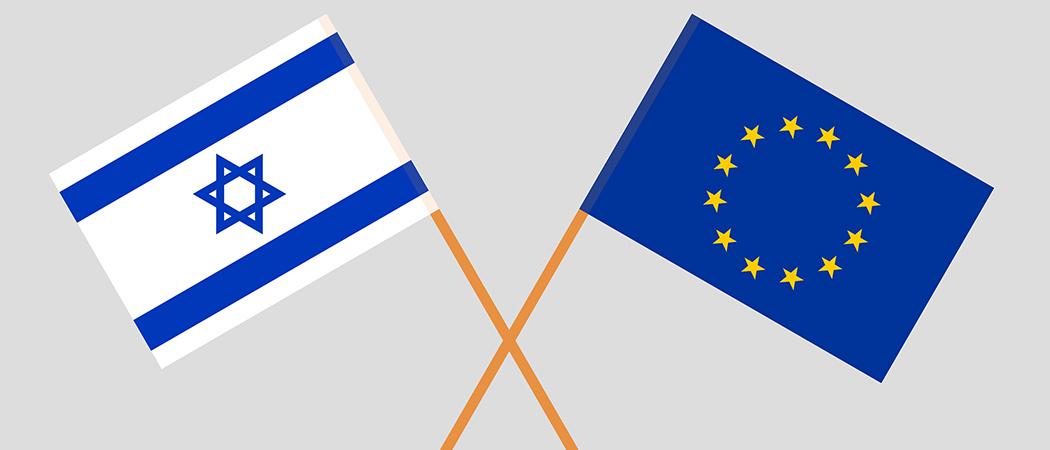The EU should make sure cooperation in research respects human rights and international law, say MEPs. The Commission says institutions based in illegal settlements will continue to be banned from participating in EU-funded projects

A group of 60 socialist and green MEPs has written to the European Commission calling on it to suspend Israel’s participation in Horizon Europe, saying the country does not respect the values the EU purports to enshrine in the €95.5 billion research and innovation programme.
Israel should be barred until it guarantees it will uphold the rights of Palestinians, the MEPs say. Joint research and innovation projects “cannot come at the expense of the respect for human rights and the rule of international law.”
The letter follows on from the Commission wrapping up association talks with Israel in October, meaning Horizon Europe is now open to scientists and entrepreneurs based in Israel.
“We urge the European Commission to reconsider and freeze Israel’s participation in Horizon Europe, until Israel guarantees compliance with its obligations under international law towards Palestinians and upholds human rights of all those under its effective control,” the letter says.
In a strategy for global research cooperation published earlier this year, the Commission said the EU should make sure that EU-funded technologies are developed “for the benefit of individuals and societies, free from authoritarianism and respecting high ethical standards and human rights.”
But the MEPs say the Israel association agreement to Horizon Europe does not live up to those standards. “No state should be exempted or treated as an exception when it comes to implementing and applying international norms and the common European values. As such, we cannot, in good conscience, allow for the Horizon agreement with the State of Israel to proceed unchallenged,” the letter said.
Rosa D'Amato, the Italian MEP in the Greens group, who tops the list of signatories, did not respond to an interview request by Science|Business. She publicised the letter on Twitter, saying the EU’s foreign policy should uphold universal values which should also apply to international research cooperation. “The EU-Israel Horizon Europe Agreement raises serious concerns over EU’s credibility at home and abroad,” D’Amato said.
Recurring row
It’s not the first time Israel’s participation in EU research has been questioned. It was the focus of a huge row during 2013, in the run-up to the previous research programme, Horizon 2020.
In May this year, a group of 522 academics from Europe and Israel signed a petition calling on the EU to keep Ariel University, located in a settlement on the West Bank, out of Horizon 2020 projects. The university had been listed as an Israeli “stakeholder” in two Horizon 2020 projects.
A couple of months later, 160 academics from 21 countries, including recipients of European Research Council grants and Marie Skłodowska Curie Fellowship, have signed a petition urging the EU to exclude “all Israeli academic institutions that are complicit in Israel’s grave violations of international law and Palestinian human rights” from Horizon Europe and other EU programmes.
Paul Aarts, a political science professor at the University of Amsterdam, who signed the petition on Ariel University told Science|Business that his views haven’t changed since May and is backing the letter signed by the MEPs.
“Since Israel has an enduring track record of violating and breaching international human rights and humanitarian law, it is long overdue that Israel's participation in Horizon Europe is fundamentally reconsidered until it guarantees compliance with its obligations under international law,” said Aarts.
The EU does not officially recognise Israel’s sovereignty on territories occupied after 1967, when Israel began building civilian communities in territories occupied during the Six-Day War, including the Golan Heights, the Gaza Strip and the West Bank, including East Jerusalem.
According to a Commission spokesman, the EU has maintained this position during negotiations with Israel on the Horizon Europe association agreement. Institutions based in illegal settlements continue to be banned from participating in EU-funded projects.
“Throughout the negotiations with Israel on the association agreement to Horizon Europe, the EU maintained its position that in line with international law and relevant UN Security Council resolutions, the EU does not recognise Israel’s sovereignty over the territories occupied since 1967,” the spokesman said.
Israel’s ministry of science and technology has not answered a request for comment.
The Commission concluded the Horizon negotiations with Israel on 15 October and the agreement was rubberstamped and entered into force on 6 December.
“The participation of Israeli entities in the Horizon Europe Programme will be subject to the Horizon Europe Regulation and any act pertaining to its implementation,” the spokesman said.
MEPs also want the Commission to carry out an investigation to find out whether EU research money contributed in any way in the development of spyware technologies by Israel-based companies Candiru and NSO Group.
Both companies were blacklisted by the US government in November, after Department of Commerce found evidence they developed spyware and hacking tools that were harming US interests. But the Commission has not found any evidence that would confirm the allegation that Horizon 2020 funds had been used to finance technologies developed by the two companies.





 A unique international forum for public research organisations and companies to connect their external engagement with strategic interests around their R&D system.
A unique international forum for public research organisations and companies to connect their external engagement with strategic interests around their R&D system.